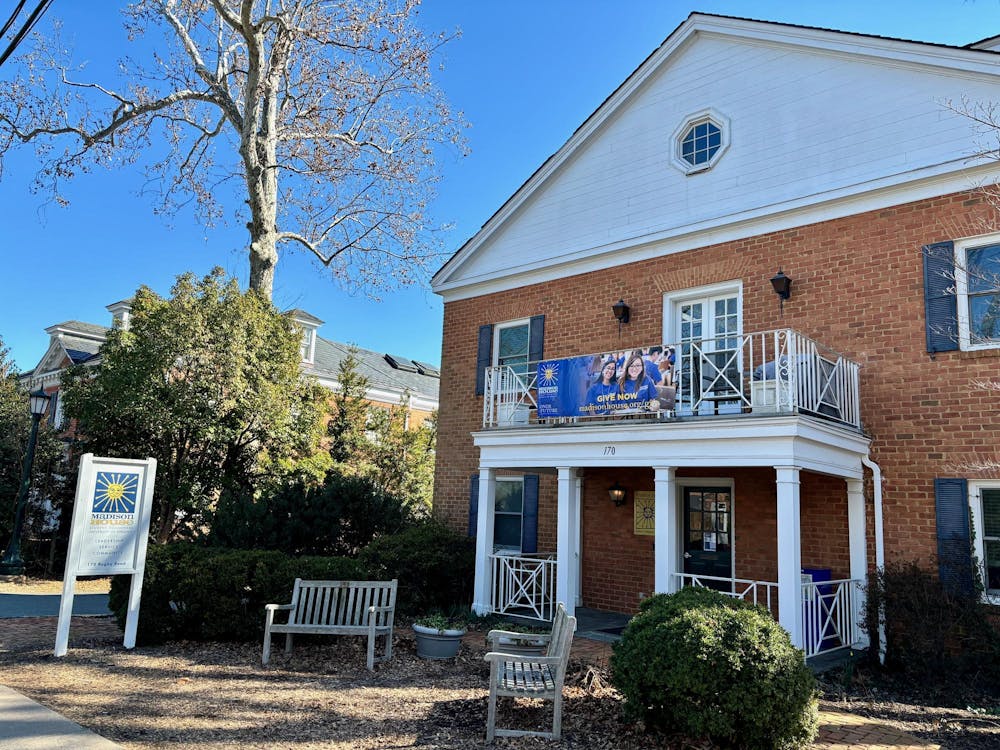Editor’s note: This article is a humor column.
Madison House’s Board of Directors announced Monday that it will be implementing auditions instead of online applications for students interested in volunteering. The decision, which will take effect during the spring 2025 recruitment cycle, comes amidst recent complaints about disorganization and concerns regarding an overwhelming number of applications.
Madison House is a non-profit organization that has dedicated over 50 years to connecting University students with service opportunities in Charlottesville. Potential new volunteers can apply to a program within one of four tracks — Animal and Environmental Services, Education and Youth Services, Health and Medical Services or Human Services. Currently, students must apply through a secondary website rather than a direct application, a process that many have cited as inefficient.
To address this issue, a new application procedure involving student auditions has been established. Board of Directors President Stagey McStagerson explained the reasoning behind the decision.
“Student volunteering is often already performative, something our online system didn’t reflect,” McStagerson said. “Auditions will bring out the extra showmanship and pizzazz our students need, and they’ll only have a few extra hoops to leap through. Literally, some Education and Youth programs will require the performance of a Hula-Hoop routine.”
On the first day of the spring 2025 semester, “WANTED” posters will be hung at various locations around Grounds. The types of performances students must complete will be listed on each poster in bright orange-and-blue cursive. Additionally, a series of out-of-order instructions will take students on a scavenger hunt to find the location of auditions, which is set to change every week. Board of Directors member Gatie Keeping commented on the new intake approach.
“Students are intimately familiar with vague assignment instructions hidden in Canvas subpages, so we believe this innovation in recruitment will actually benefit them,” Keeping said.
Students will be taken on a first come, first serve basis as they arrive at the audition location. The Board of Directors has created a new committee, Service4Self — SFS for short — to oversee and judge these auditions. This is not to be confused with Student Financial Services, the University’s financial aid office — although SFS will be requiring students to pay an audition fee that is not eligible for any aid.
The SFS committee will consist of seven former student volunteers, all of whom have successfully gained admission into the Frank Batten School of Leadership and Public Policy or the McIntire School of Commerce with their Madison House service hours.
Each applicant must complete two auditions — one for their desired track and another for the specific program they wish to volunteer with. As an example, all students interested in Education and Youth Services will be judged on how many tears they can provoke from a random professor’s child during a 10-minute performance of a long division lesson. Potential Health and Medical Services track volunteers, on the other hand, will be given a score based on how much medical jargon they can carve in the dirt outside using only a hospital badge, while simultaneously reciting the terms as a monologue.
The announcement of the audition formats was met with mixed reactions. First-year Architecture student Audrey Schedule conveyed skepticism about the process.
“I mean, I just wanted a new color for my Google Calendar,” Schedule said. “I have red for classes, yellow for my Saxby’s shifts and navy for club swim practices. I REALLY want sage green for volunteering with Animal and Environmental Services. But choreographing a dance with a shovel while planting a seed in a pot? Seems like a lot of work.”
Certain tracks are already competitive. To maintain the University’s prestigious reputation, Madison House plans to become even more selective through the auditions. The organization hopes to obtain an acceptance rate rivalling that of the Charlottesville Super Duper Esteemed Consulting Club or the Lambda Gabba Flappa business fraternity. Therefore, the top 5 percent of students who audition will be accepted into a track, regardless of whether the actual need for volunteers will be met with those numbers. University President Jim Ryan gave a statement about this procedure.
“Madison House is doing a wonderful job of upholding the ideals of the University,” Ryan said. “By making these volunteer opportunities even more elite, they become like unicorns or fully cooked meat at O’Hill — rare and precious. We must prepare students for the competitiveness of the real world, so they don’t just become great and good — but the BEST.”
Second-year College student Resmay Builda, who plans to join the Creating Assets, Savings and Hope, or CASH program as part of Human Services, expressed indifference when asked for his opinion on the changes.
“Honestly, I don’t really care that they’re asking me to sing CavMan’s tax returns to the tune of The Good Old Song,” Builda said. “Whatever it takes for my Comm school app.”
When asked about how he felt regarding the impact of his potential future service, Builda appeared confused. The Cavalier Daily had to rephrase the question a few times, emphasizing how volunteering with CASH could significantly benefit low-income communities in Charlottesville. Builda, seemingly unfazed, had no comment on this.
Madison House and SFS have stated that they will be there to support students through every step of the audition process. With the spring 2025 recruitment cycle on the horizon, the organization hopes that the approach will inspire a new generation of student volunteers. Above all else, their goal is to help them realize the true meaning of service — as long as they remember to pay the audition fee.







